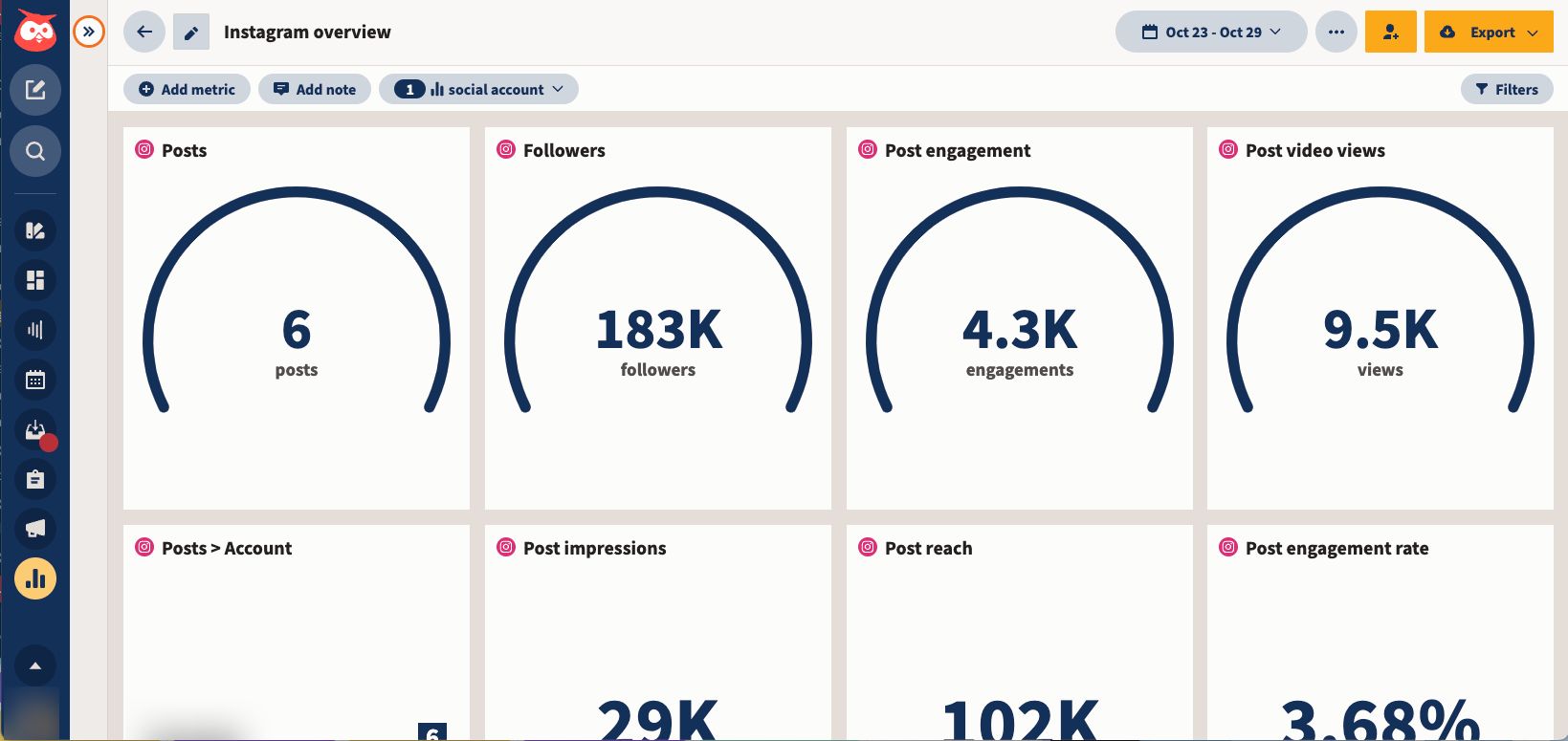How to Manage a Music Marketing Campaign
Executing a music marketing campaign as an independent artist in today’s digital landscape is both exciting and challenging. Unlike established labels with ample resources, independent musicians often find themselves navigating the complex terrain of promotion on their own. However, with the right strategies and approach, it’s entirely possible to make a significant impact and connect with your target audience.
The Significance of Effective Marketing
In a sea of artists vying for attention, the significance of a well-executed music marketing campaign cannot be overstated. Your music might be exceptional, but without visibility and promotion, reaching the right audience becomes an uphill battle. Marketing serves as the bridge between your creative output and the ears of your potential listeners. It’s the tool that introduces your work to the world and invites people to engage with it.
Challenges Faced by Independent Artists
Independent musicians face a myriad of challenges when it comes to marketing their music. Budget constraints often limit the resources available for promotional activities. Moreover, breaking through the noise and capturing attention in a crowded digital space is no easy feat. With countless new releases hitting digital service providers daily, standing out requires not just talent but a smart and targeted approach to marketing.
Setting the Stage: Pre-Campaign Preparation
Understanding the Product
Before diving headfirst into marketing strategies, take the time to deeply understand your music. What genre or genres does it fall into? What makes it unique? What emotions does it evoke? Understanding the essence of your creation helps in crafting a compelling narrative around it. Identifying your target audience is equally crucial. Knowing who your music resonates with allows for more precise targeting in your promotional efforts.
Define Goals
Establish clear and measurable goals for your campaign. Do you aim to increase streaming numbers, gain followers, or drive traffic to a particular platform? These objectives will guide your strategies and help evaluate the success of your campaign.
Budgeting
While marketing often involves costs, being an independent artist doesn’t always mean a hefty budget. Allocate resources wisely. Perhaps start with low-cost or free marketing tactics such as leveraging social media or collaborating with fellow artists. You may want to consider investing in targeted ads. Traditionally the success of online ads can be hit and miss. Start by investing small amounts and scaling the budget if the ads are yielding good results
You may also want to call on the services of a PR company or agent. Specialist PR services can help elevate your music and are great if you have limited time available. Do however be aware that there are many dubious operations out there. For example, there are many companies that promise high streaming numbers but these are generated through bot accounts. The most important thing when investing in any targeted ads or PR services is to consider your goals, key objectives and the audience you’re targeting.
Research and Planning
Research is your ally when it comes to a music marketing campaign. Study successful marketing campaigns within your genre or among similar artists. What strategies did they use? What worked and what didn’t? Learn from both successes and failures to tailor your approach effectively. If you have a personal relationship with an artist who is successful in marketing and selling their music then try reaching out. Alternatively, there are hundreds of creators and channels on Youtube that offer specific music marketing advice. Two great channels worth checking out are DamienKeyes and Burstimo While these kinds of channel can be invaluable try to avoid falling down a YT wormhole. It’s easy to spend weeks listening to YouTuber’s strategies at the expense of actually working on your campaign.

Finally, once you feel you’re armed with enough knowledge, plan a timeline for your campaign, mapping out key milestones leading up to the release date and beyond.
Building a Strong Foundation
The groundwork laid in this initial phase sets the tone for your campaign. Taking the time to understand your music, define goals, allocate resources, conduct research, and plan effectively provides a solid foundation for the journey ahead.
Crafting Your Music Marketing Campaign Strategy
Leveraging Social Media
Social media platforms are powerful tools for connecting with your audience. Each platform has its strengths, so tailor your approach accordingly. Instagram is visual-centric, ideal for sharing photos, short videos, and stories. Twitter’s concise format suits quick updates and engagement. TikTok’s trend-driven content can amplify visibility through challenges and entertaining snippets. Facebook on the other hand has become more associated with a slightly older user now. It therefore may not be wise to focus too heavily on FB if your music is aimed at a younger audience.
Content Creation
Compelling content is king in the digital realm. Create engaging content that showcases your music and personality. Teaser videos, behind-the-scenes glimpses, lyric excerpts, or live sessions can pique interest. There is a growing trend towards content that doesn’t even directly promote your music. Rather, your primary focus is on making your content engaging or entertaining. You can include information relating to your release but keep it very subtle. If you or your music strikes a chord with someone they will want to find out more independently. One thing that is essential in any campaign is to be consistent. Maintain a regular posting schedule to keep your audience engaged and anticipating your release.
Collaborations and Networking
Teaming up with fellow musicians, influencers, or content creators can expand your reach. Consider collaborations for remixes, joint performances, or guest features. Always engage with your audience and fellow artists—comment on posts, share content, and build a community around your music.
Engaging Your Audience
Interacting with your audience fosters a deeper connection. Respond to comments, messages, and engage in conversations. Consider conducting Q&A sessions, live streams, or exclusive previews to involve your audience actively. Note* while it can sometimes be tempting to offer controversial or negative comments it’s best to avoid doing so. Try to keep any interactions 100% positive as this will help nurture a welcoming and inclusive fan community.
Adaptability and Experimentation
Be open to adapting strategies based on audience response. Track metrics—likes, shares, comments, and streaming numbers—to gauge the effectiveness of your tactics. Experiment with different content formats, posting times, and messaging to optimize engagement.
Implementation: Putting Your Strategy into Action

Release Timeline
Craft a well-thought-out release schedule leading up to and following your launch day. Plan teaser posts, countdowns, and exclusive previews to build anticipation. Consider scheduling content across platforms to maintain momentum and engagement.
Email Marketing
Utilize your email list effectively. Send out newsletters, exclusive content, or updates about your release. If possible personalize messages to make your audience feel valued and connected. Include calls-to-action directing subscribers to pre-save or purchase your music.
Note* If you’re looking for an effective free way to set up a pre-save campaign check out this post.
PR and Press Outreach
Pitch your music to media outlets, blogs, and influencers aligned with your genre or style. Craft personalized and concise pitches that highlight what makes your music unique. Offer press releases, exclusive interviews, or early access to garner attention and coverage.
Collaboration Activation
You may want to consider executing planned collaborations or partnerships during this phase. Coordinate releases or joint campaigns with other artists or influencers. If you have worked with another producer/musician/artist on your release encourage them to help promote the release through their channels. All of these methods can help to leverage collaborators’ audiences to expand your reach and tap into new fan bases.
Monitor, Adapt, and Engage
Regularly monitor campaign performance using analytics tools provided by platforms or third-party services. Analyze engagement metrics, streaming numbers, and audience demographics. Adapt your strategy based on what resonates best with your audience.
Monitoring and Adapting your Music Marketing Campaign.
Tracking Progress
Utilize the available analytics tools to track the performance of your music marketing campaign. Analyze metrics such as engagement rates, reach, streaming numbers, and conversion rates. These insights provide valuable data on what’s working and what needs adjustment.

Adapting Strategies
Based on the gathered data, tweak your strategies accordingly. If certain types of content perform better, create more of that content. Adjust posting schedules, messaging, or targeting to optimize results. Experiment with different approaches to find the most effective ones.
Audience Interaction
Continue engaging with your audience throughout the campaign. Respond to comments, messages, and feedback. Conduct polls or surveys to gather insights directly from your audience about their preferences and expectations.
Flexibility and Iteration
Stay flexible and open to iteration. The digital landscape is ever-evolving, so what worked previously might not yield the same results now. Adaptability and willingness to pivot are crucial for sustained engagement and growth.
Reflection and Learning
Regularly review the progress of your music marketing campaign against the goals set out initially. Identify successes, areas for improvement, and lessons learned. Use this information to refine future campaigns and build upon your experiences.
Post-Campaign Reflection
Analyzing Results
Once your music marketing campaign concludes, it’s time for a comprehensive analysis. Compare the actual outcomes against the goals you set initially. Review metrics, such as increased streams, engagement rates, new followers, or website traffic. Identify what worked well and what didn’t.
Learning and Iterating
Extract valuable insights from the campaign’s performance. Understand the factors contributing to its success or areas needing improvement. Did certain types of content perform exceptionally well? Were there particular platforms or strategies that yielded better results?
Gathering Feedback
Request feedback from your audience. Conduct surveys or polls to understand their perceptions of your campaign. Ask about their favourite content, what resonated with them, and areas they think could be improved. Everyone likes to feel as though they have some form of influence and your audience is no different. They will welcome opportunities to help you build as an artist so don’t be hesitant to ask for feedback.
Identifying Opportunities
Based on your analysis and feedback, identify opportunities for growth and refinement. Perhaps there are untapped audience segments or overlooked strategies that could be leveraged in a future music marketing campaign.
Documenting Insights
Document your learnings systematically. Create a report or document detailing the campaign’s performance, insights gained, and actionable takeaways. This becomes a valuable resource for planning future marketing endeavors.
Conclusion
Effectively managing a music marketing campaign as an independent artist demands dedication, strategic planning, adaptability, and continuous learning. By laying a strong foundation, crafting a compelling strategy, and actively engaging with your audience, you have the power to maximise the success of your release.
Remember, each campaign is a learning experience. Embrace the journey, celebrate achievements, and leverage insights gained to refine your approach. With persistence and a keen understanding of your audience, you can create impactful marketing campaigns that resonate with your listeners and propel your music career forward.
So, that concludes our guide on managing a music marketing campaign. Best of luck with all of your musical endeavours and may your fans and plays be plentiful!
Remember – RouteNote Create subscriptions start from as little as $2.99. You also get 10 FREE credits to spend on samples along with access to our FREE sample pack bundle when you sign-up!
